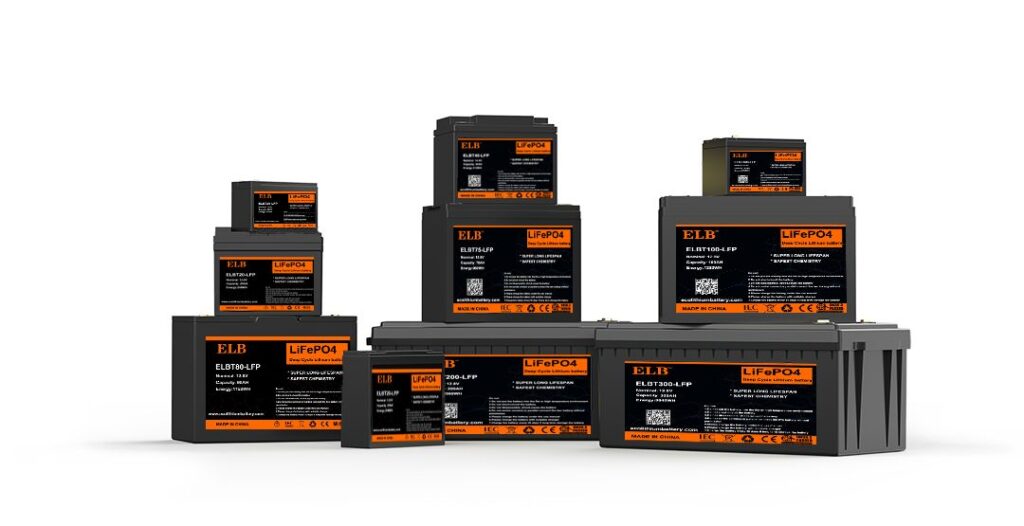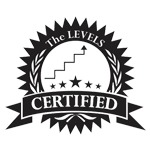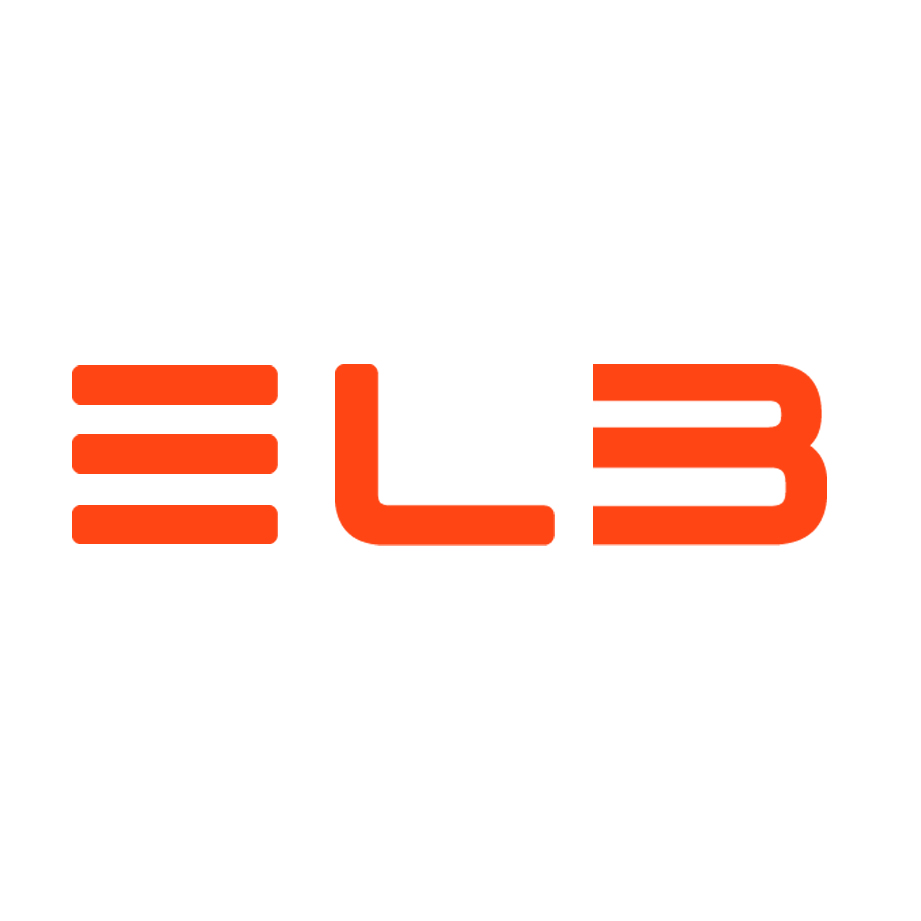
There are many types of 12V batteries on the market. Including lead-acid batteries, ternary lithium batteries, lithium iron phosphate batteries, lithium titanate batteries, and so on. According to different types of batteries, there are obvious differences in their packing method, capacity density, life curve, charge and discharge rate and cost.
Application field of 12V Batteries
12V batteries are commonly used in solar street lights, RV, boat and other car starting systems, etc. During use, the battery is used as an energy storage device to supply energy to the device through charging and discharging.
We can use an external 12V inverter convert the DC power of battery into AC power. Thus powering electrical appliances throughout the home.
Usually, the capacity can be increased by connecting 12V batteries in parallel, thereby increasing the battery life. The voltage can be increased by connecting 12V batteries in series. So it can be used in 24V or 48V lithium battery systems.
Types of 12V batteries
Common 12V batteries on the market include lead-acid batteries, lithium-ion batteries, lithium iron phosphate batteries, lithium titanate batteries, and the upcoming sodium ion batteries
Lead acid batteries
Lead-acid batteries are the most basic type of 12V battery. They are made of lead plates suspended in a solution of sulfuric acid. This creates a chemical reaction that stores energy.
Flooded lead-acid batteries are the most common type of lead-acid battery. You need to add the right amount of water to these batteries for them to work properly. This means that we need regular maintenance and monitor this battery. Flooded lead-acid batteries typically last from 2 to 5 years, depending on usage and maintenance. Costs can vary widely, starting at around $100.
Ternary lithium batteries
Ternary lithium battery is a kind of lithium battery. The ternary lithium battery is a lithium battery that uses the ternary material nickel-cobalt lithium manganese oxide as the positive electrode material.
From a structural point of view, the ternary lithium battery has high energy density and high charge and discharge efficiency. Generally speaking, ternary lithium batteries are suitable for scenarios with high energy density, limited space, and high customer experience requirements. Such as mid-to-high-end passenger cars; many electric bicycles, electric vehicle batteries, etc. use ternary lithium batteries.
Lithium iron phosphate batteries
Lithium iron phosphate is a compound LiFePO₄ or “LFP” for short. LFP has good electrochemical performance and low resistance, and is one of the most stable cathode materials for lithium-ion batteries. Lithium iron phosphate batteries are the safest type of lithium battery on the market today. It also has outstanding performance in cycle life.
Our LiFePO4 batteries can not only achieve more than 3,000-5,000 cycles, but also can achieve 100% depth of discharge (DOD). With LiFePO₄ (unlike other batteries) you don’t have to worry about over-discharging your battery. Also, you can use it for a long
Lithium titanate batteries
The lithium titanate battery (Referred to as LTO battery in the battery industry) is a type of rechargeable battery based on advanced nano-technology. which is a lithium ion battery that use negative electrode material – lithium titanate. Which can be combined with lithium manganate, ternary material or lithium iron phosphate and other positive electrode materials to form a 2.4V or 1.9V lithium ion secondary battery. In addition, lithium titanate batteries can also be used as positive electrodes to form 1.5V lithium secondary batteries with metal lithium or lithium alloy negative electrodes.
For more details about LTO batteries, please read our article<LTO battery: All Things You Want Know>
What is the best 12V batteries for your application?
Picking the best 12 volt battery type for you comes with trade-offs. Each battery type has advantages and disadvantages, and these may vary depending on your RV or travel style.
Those on a tight budget might opt for a cheaper flooded lead-acid battery, even if it costs more in the long run. Those who regularly work in extremely hot or cold temperatures may want to avoid lead-acid batteries in favor of lithium-ion batteries, which are able to protect themselves and perform better.
If the budget is okay, choosing lithium iron phosphate battery will be more suitable for you, because of its long cycle life and high safety, it is the perfect choice for many applications.
If the frequency of use is particularly frequent, dozens of times a day, we recommend using lithium titanate batteries, although the price of lithium titanate batteries is expensive, three times the cost of ordinary batteries. In extremely low temperature weather, we also recommend to use lithium titanate batteries, because lithium titanate batteries can work normally at -40℃.
Related article
How to connect batteries in series vs parallel?
Sodium Ion Battery: The Definitive Guide
LTO battery: All Things You Want Know





